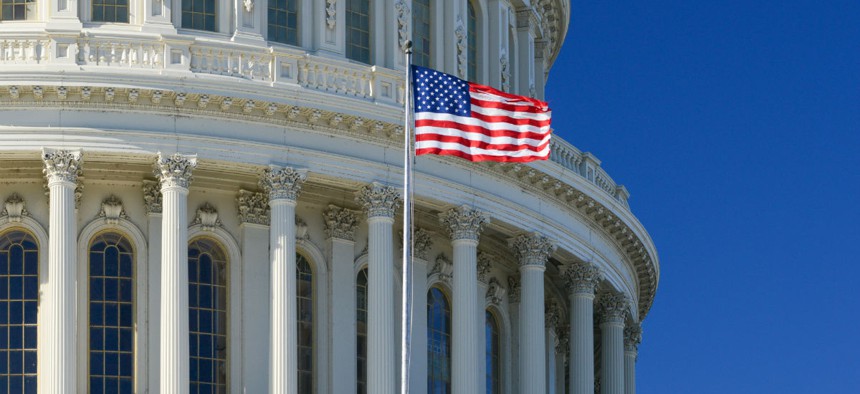
By Orhan Cam / Shutterstock.com
Senate Rejects Bill to Rescind $15 Billion From Federal Agencies
White House pledges to continue to fight for spending cuts.
The Senate on Wednesday narrowly rejected President’s Trump push to rescind $15 billion in federal spending that Congress had previously allocated, ending the White House’s push for the first such package since the Clinton administration.
Two Republicans joined all Democrats present in rejecting the rescissions bill, which Trump had sent to lawmakers for expedited approval. The Senate had until Friday to pass the bill under special rules that allowed it to advance the measure with a simple majority.
The House had approved the measure by a 210-206 vote.
Most of the clawbacks would not have affected agencies directly, as they dealt with money that Congress appropriated that went unspent or that is no longer necessary. In some cases, Republicans said, agencies could not spend the money proposed for rescission even if they wanted to. A Congressional Budget Office report on the package found the measure would save just $1 billion in actual outlays over the next 10 years.
CBO said it examined historical spending patterns and found much of the money the White House said should be rescinded would not have been spent anyway. Other parts of the package would have clawed back money unlikely to be spent because agencies no longer needed it for the purpose for which it was allocated, CBO said. In its own estimate, the Office of Management and Budget suggested the package would have reduced outlays by $3 billion.
The White House on Wednesday blasted Congress for rejecting its package.
“It is disappointing that the Senate chose to reject this common-sense plan, and the American people should be asking their representatives in Washington one simple question: If they cannot pass good-government legislation to recapture unnecessary funds, how can we ever expect them to address Washington’s staggering debt and deficit problem?,” said OMB Director Mick Mulvaney, who pledged to “continue our efforts to get government spending under control.”
The bill was part of a larger effort the White House is taking to cut federal appropriations, despite the president earlier this year signing a budget deal setting top-line funding levels for fiscal years 2018 and 2019. OMB Director Mick Mulvaney has in recent weeks sent a series of letters to congressional appropriators asking it to slash spending they have proposed allocating in their funding bills.
Republican Sens. Richard Burr, N.C., and Susan Collins, Maine, joined 48 Democrats in rejecting the bill.







